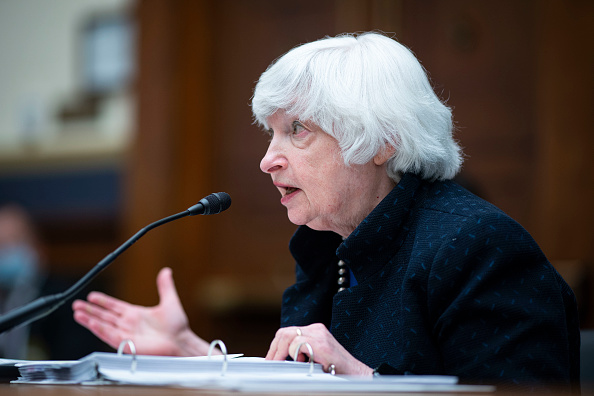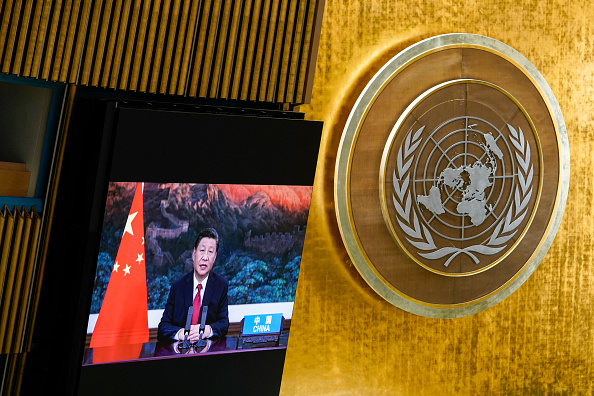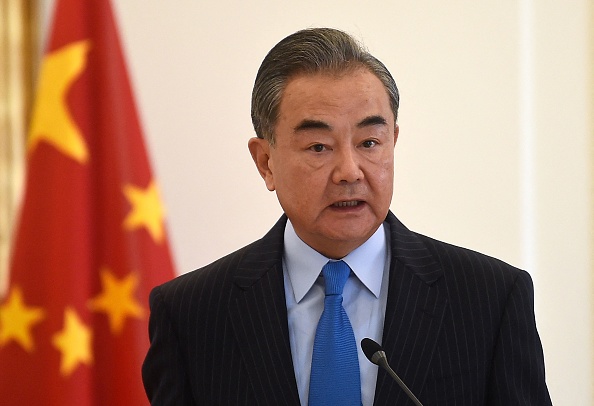
 Dry Tinder
Dry TinderChinese Vice Premier Liu He held a video conversation with U.S. Treasury Secretary Janet Yellen this week, with both sides agreeing to increase economic dialogue and ramp up bilateral trade talks. This is the second call between Liu and Yellen during the Biden Presidency, and signals progress in the U.S.-China economic and trade negotiations
According to a statement from the U.S. Treasury, Yellen "frankly raised issues of concern," and looked forward to future discussions with Liu. China described the conversation as "pragmatic, candid and constructive, but expressed its concerns over U.S. tariffs and the fair treatment of Chinese companies.
Meanwhile, US Trade Representative Katherine Tai said that her engagement with China is aimed at reducing the temperature of a trading relationship between the world's two largest economies that has become dangerously heated. Tai warned that the relationship between the superpowers has reached the point where a misunderstanding could spark "a giant fire" with "drastic implications."
Read more in "U.S. Companies Pushing Biden to Re-open Trade with China," by Zainab Zaheer.
 Diplomatic Maneuvers
Diplomatic ManeuversPresident Xi Jinping marked the fiftieth anniversary of China's readmission to the United Nations, when the UNGA voted to restore membership to China and open a new era of interaction with the world body. Xi addressed the conference via video link, calling for global cooperation on issues like terrorism and cybersecurity.
Xi did not mention Taiwan directly in his remarks, however hanging over the conference were Chinese complaints about the Biden administration trying to assist Taiwan's future participation at the United Nations. "International rules can only be made by the 193 UN Member States together, not decided by individual countries or blocs," Xi added. He said China would "stay committed to the path of peaceful development and always be a builder of world peace."
President Tsai Ing Wen of Taiwan, meanwhile, said this week that the threat from China is increasing every day, calling Taiwan a "beacon" of democracy that needs to be defended to uphold faith worldwide in democratic values. She also confirmed the presence of U.S. military trainers on the island, saying that "we have a wide range of cooperation with the U.S. aiming at increasing our defense capability."
Meanwhile, the world remains focused on the start of the COP26 negotiations in Glasgow. China formally submitted to the UN on Thursday an improvement in its emission-cutting plan, which falls short of what many had expected China has been under pressure to make a significant jump in its pledges and to speed up its plans to decarbonize its economy. The global climate talks in Glasgow next week will present a challenge for whether the U.S. and China can help deliver meaningful progress in climate negotiations.
 Restore and Rebuild
Restore and RebuildChinese Foreign Minister Wang Yi met with a Taliban delegation in Qatar earlier this week, serving as the first high-level meeting between Beijing and the Taliban since the interim government was formed last month. China vowed to assist the Taliban in rebuilding the country and emphasized their call for Washington to lift sanctions against Afghanistan's new leaders.
While Wang reiterated China's support for efforts to restore and rebuild the country, he also called on the Taliban to "demonstrate openness and tolerance" within their governance, particularly regarding Afghanistan's various ethnic groups, women, and children, and continued to urge the Taliban to prevent new terror groups from forming. Separately, it's also been speculated by think tank experts familiar with China's foreign policy considerations that while this high-level meeting occurred, Beijing won't take the global lead in officially recognizing the Taliban government, and that it will instead require a joint effort with Pakistan, Russian, and Iran to do so.
It was also reported this week that China will finance the construction of a new military base on Tajikistan's border with Afghanistan, though no Chinese troops would be stationed at the outpost. China isn't alone in the possibility of bases in the region, as the U.S. has also been in talks to establish outposts for counter-terrorism operations in the area, which has worried China. "The U.S. says the bases are for fighting Afghan terrorists, but it could have other motives related to China and Russia," said the vice chairman of the China Institute for International Strategic Studies, a research arm of the foreign ministry.
Read more in "Rare Earth Minerals – China's Key to Afghanistan, and the Taliban's Chance to Raise Living Standards?," by Leonardo Dinic.
Prepared by China-US Focus editorial teams in Hong Kong and New York, this weekly newsletter offers you snap shots of latest trends and developments emerging from China every week, while adding a dose of historical perspective.
- 2021-10-22 A Diplomatic Burn
- 2021-10-15 Energy Crunch
- 2021-10-08 Stoking Tensions
- 2021-10-01 Great Power Coopetition
- 2021-09-24 Sign of Goodwill?
- 2021-09-17 State of Play
- 2021-09-10 The Last Word
- 2021-09-03 Heightened Frustrations
- 2021-08-27 China’s Backyard
- 2021-08-20 Graveyard of Empires
- 2021-08-13 A New Crossroads
- 2021-08-06 Lowering Barriers
- 2021-07-30 A Diplomatic Stalemate
- 2021-07-23 A Climate for Change
- 2021-07-16 The Trade Game
- 2021-07-09 Existential Threats
- 2021-07-01 Centenary Celebrations
- 2021-06-25 Critical Crossroads
- 2021-06-18 Part of the Club
- 2021-06-11 Retaliatory Legislation
